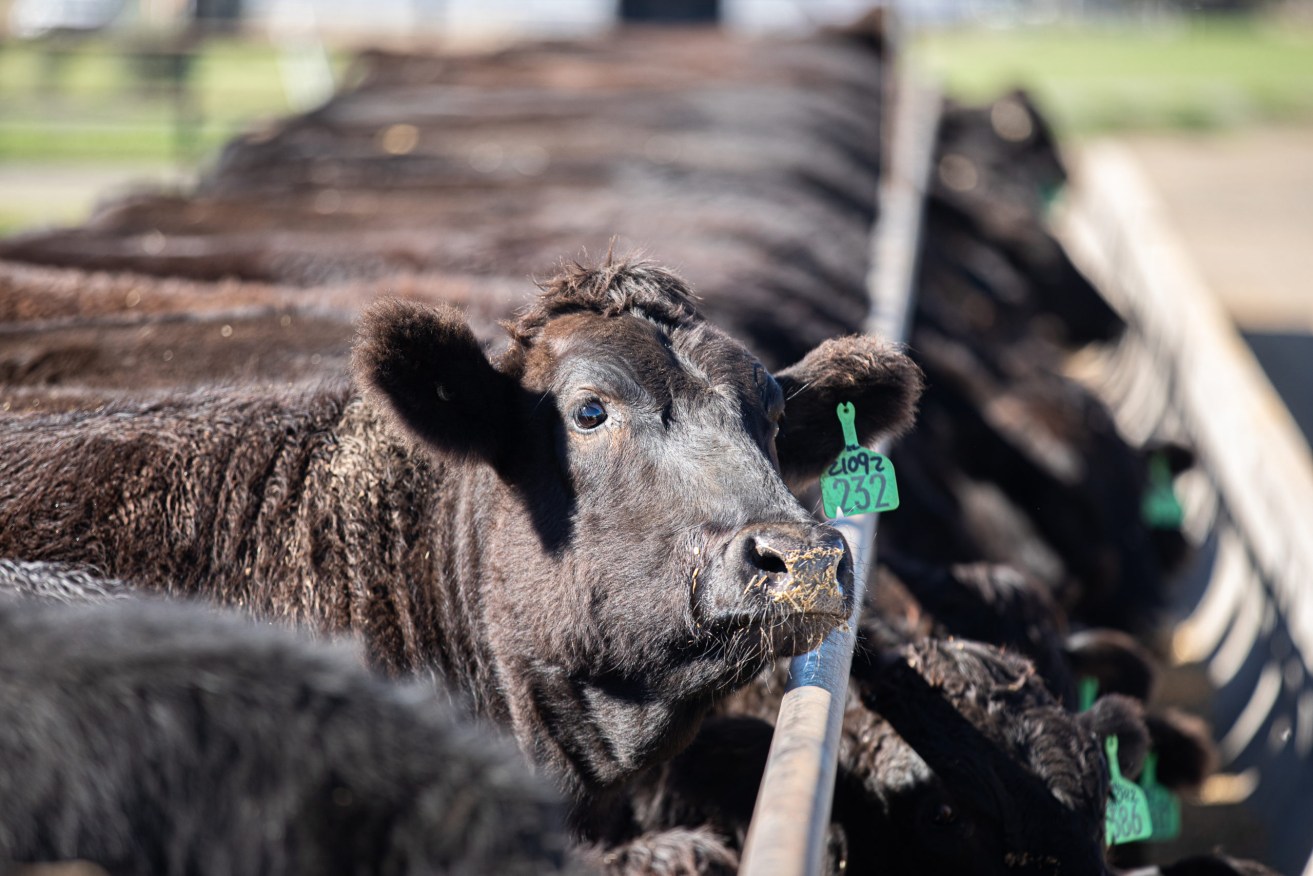Sweet and sour: Why two banks have sustainable beef on (and off) the menu
Divergent approaches taken by two Australian banks towards beef production in the past week highlight the challenge ahead for the livestock sector to keep public opinion on the positive side of the ledger, reports Brad Cooper.


Talk about putting your money where your mouth is.
While deputy PM Barnaby Joyce continues to prevaricate on committing Australia to a low-carbon economy, arguing the costs are absent from the menu, an award-winning Queensland beef producer is staking its future on a business blueprint that will put improvements in environmental performance squarely on the table.
The concept is called a ‘sustainability-linked loan’ – nothing new in the world of finance, but hailed as the first deal of its type reached with an Australian agricultural operation.
Taking the honours is family-owned Stockyard, a vertically-integrated Darling Downs grain-fed beef enterprise that breeds and backgrounds cattle, and runs a 20,000 head feedlot near Jondaryan for its premium Wagyu and Angus brands sold into multiple markets.
Stockyard’s three-year re-financing deal with the Commonwealth Bank will see incentives for achieving carbon emissions reduction, improving animal welfare and creating a safer workplace for employees hard-baked into the loan’s conditions.
The loan structure offers reduced rates when metrics are met and penalties if the organisation materially underperforms.
The cost savings achieved through the loan will be directly invested by Stockyard into projects that will allow the business to not only meet ongoing loan targets but ultimately achieve its sustainability goals above a base-line measure.
Auditor Enrnst and Young has been appointed as the third party to verify performance against the set, internationally recognised benchmarks.
Stockyard managing director Lachie Hart, a former chair of the Australian Meat Industry Council and former director of the Red Meat Advisory Council, says the arrangement aligns with the broader industry’s strategic intent to achieve carbon neutrality by 2030.
Hart’s message, which now comes with hard-wired financial accountability within his own business to achieve sustainability goals, is lightyears from the perception that agriculture should be omitted from any (albeit ill-defined) transition to a low-carbon future.
“When I was previously on the RMAC board and we were developing our own strategic plan, we saw this all the time, the lack of direction from government,” Hart told InQueensland.
“It’s something I find very pleasing about being involved in the red meat industry – whenever we’ve had a major challenge, we’ve always addressed it head-on, taken the initiative and come out in better shape
“I think this is also the case here. We understand the risks of climate change and we understand the benefits of sustainability and the expectations of consumers for us to be good corporate citizens.
“If we sit back and wait too long for that direction, we’re going to miss the boat.”
Money to farms frozen
Lost sales via a drop in public confidence is not the only risk that may come from falling behind on community sentiment or failing to bust myths that farming remains locked in a time capsule.
Queensland farm industry organisation AgForce is currently in a spat with Bank Australia for its refusal to provide financial services to Australian livestock businesses.
In a statement from AgForce CEO Mike Guerin, the ‘secondary boycott’ is being rolled out under Bank Australia’s ‘Responsible Banking Policy’, which states the Victorian-based bank does not provide financial services to ‘organisations that use intensive animal farming systems…or organisations that export live animals’.
The policy has received public endorsement from Animals Australia, the organisation that exposed abuse of Australian cattle in Indonesia, leading to the temporary live cattle export suspension in 2011.
According to AgForce, a Bank Australia spokesman justified the document saying many of their customers “don’t want their money being used to support practices that cause harm and distress to animals.”
“What is most galling about this case is the intimation that we are an industry that causes distress and harm to animals,” Guerin said.
“We and our members are outraged and deeply offended by comments by Bank Australia that criminalise our industry.
“Producers in Australia and Queensland adhere to stringent animal welfare laws that protect livestock from harm and distress, and to suggest otherwise is a blatant misrepresentation of our industry and practices.”
Sustainability equals profitability
Before the Commonwealth Bank (CBA) came courting business in the agricultural sector for its sustainability-linked loan products, already activated on construction projects at Gold Coast Airport, and most recently Royal Adelaide Hospital, Stockyard was at least three years into delivering its sustainability plan.
In Hart’s words, “CBA wanted to partner with someone who was leading from the front”.
Among the projects on the Stockyard strategic whiteboard include reducing water use, converting to alternative energy sources and improving the digestion of their cattle with the use of feed additives derived from seaweed to lower methane emissions.
There are plans afoot to run the entire operation on solar power and capture methane off sediment ponds adjacent to the feedlot to redirect into energy used for steam flaking grain.
On the animal husbandry front, Stockyard doesn’t brand cattle and uses pain relief for on-farm surgical procedures such as castration and de-horning.
Further investments in cattle genetics are refining animals that can convert grain into saleable meat yield faster, reducing the number of days cattle need to be on feed.
“It’s still early days but it’s already delivering a strong commercial return on investment that’s exceeding everyone’s expectations,” Hart said.
“I’ve researched many case studies from organisations like ours from all over the world looking at ways to improve their sustainability credentials and I’m yet to find one who has lost money in the process.
“They have all shown improved bottom lines as a consequence of their plans to invest in sustainability.
“It’s given me the confidence to say that as a family business of multiple generations, which wants to hand the business to a new generation in better shape than it is today, sustainability means a more profitable business.
“Gaining these credentials will help us achieve those goals for the long term.”








